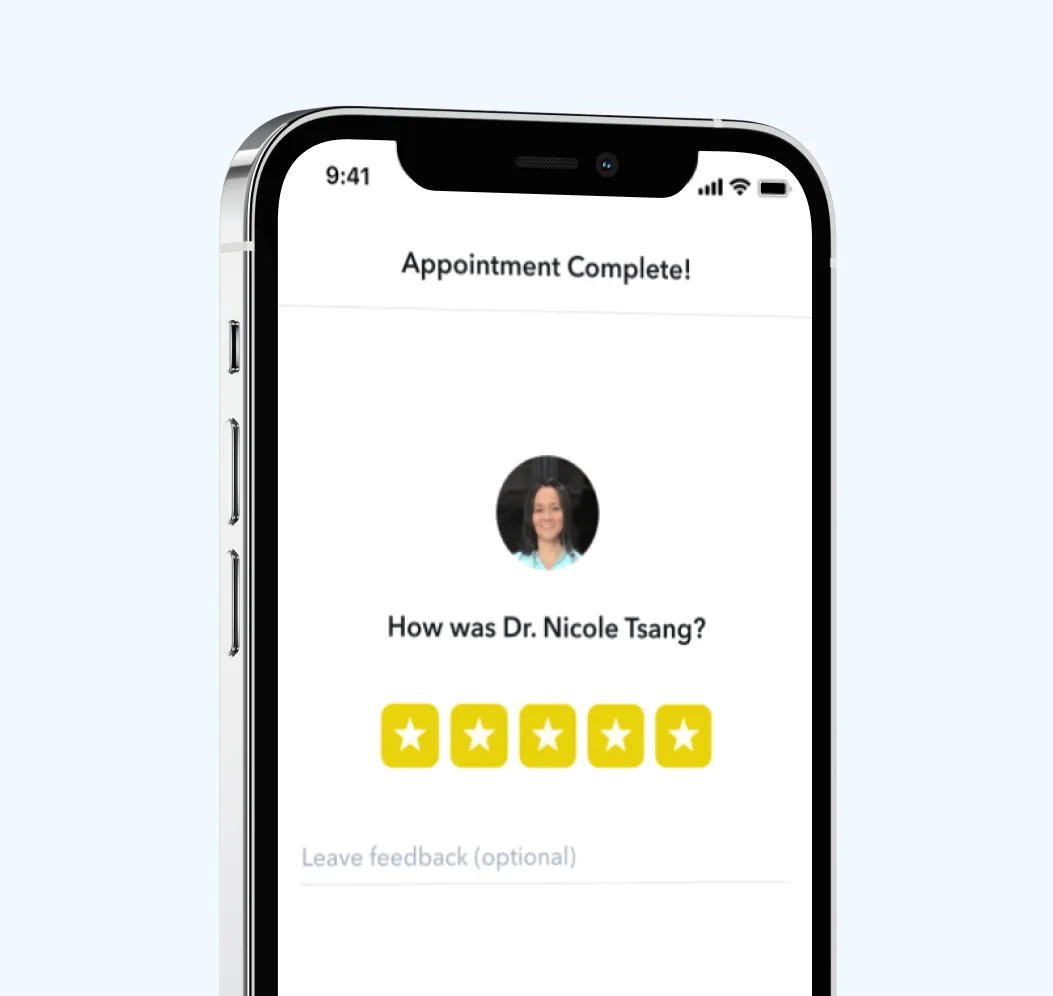All posts
How to Check Your Thyroid at Home

Circle Medical Staff
Jun 12, 2023
10 mins

Your thyroid is a gland that plays a crucial role in your overall health and well-being. When you have thyroid dysfunction, it can lead to a myriad of health complications. However, identifying thyroid issues early and addressing them medically can help prevent these complications.
It’s a good idea to check on your thyroid health on a regular basis. You can even check your thyroid health yourself at home by following a few simple tests. In this comprehensive guide, we’ll discuss everything you need to know about checking your thyroid at home, including the signs of thyroid problems, DIY tests, and when to see a doctor. Read on to learn more!
The Importance of Thyroid Health
According to the American Thyroid Association, up to 20 million Americans may have some form of thyroid disease. Even more surprising, many may not even know they have a problem. It’s estimated that up to 60% of people with thyroid conditions are unaware of it or have gone undiagnosed.
Your thyroid is responsible for regulating a number of bodily functions, and problems with your thyroid can easily affect your quality of life. Neglecting a thyroid condition can lead to health complications such as weight gain, fatigue, cardiovascular disease, osteoporosis, infertility, depression, sleep disturbances, and more.
That’s why it’s crucial to maintain a healthy thyroid gland by taking steps to protect your overall health. With that being said, let’s take a closer look at what the thyroid gland does and how to recognize signs of dysfunction.
What Is the Thyroid Gland?
The thyroid gland is a small, butterfly-shaped organ located in the neck. While the thyroid gland may be small, it has a huge effect on our bodies. The thyroid gland produces hormones that play a vital role in regulating our metabolism. The thyroid gland produces hormones that influence every cell, tissue, and organ in our bodies, so it’s easy to see why a thyroid condition could cause health problems.
Some other functions of the thyroid gland are controlling functions of the heart and our muscular and digestive systems. It also plays a role in brain development and bone health.
Therefore, it’s important to keep your thyroid health in check and know how to check for any potential issues. Let’s take a look at some of the signs and symptoms you can watch for to spot a potential thyroid issue.
Signs and Symptoms of Thyroid Dysfunction
Knowing the signs and symptoms of thyroid dysfunction can help you detect the condition early on. Here are some of the common signs and symptoms of thyroid dysfunction to look out for:
- Chronic fatigue - Thyroid dysfunction can lead to regular fatigue, even when you feel like you’re getting enough sleep at night.
- Weight gain or loss - An underactive or overactive thyroid can lead to fluctuations in your weight, even if you haven’t adjusted your diet or exercise routine.
- Hair and skin changes - When your thyroid is unbalanced, you may notice some changes in your hair and skin. Thyroid dysfunction can lead to hair loss, dry skin, and sometimes brittle nails.
- Irregular menstrual cycles - For women, thyroid dysfunction can affect their menstrual cycle. An overactive or underactive thyroid can lead to lighter or heavier periods as well.
- Mood changes - Thyroid dysfunction can also affect your mental well-being. Depression, anxiety, irritability, and mood swings can all be exacerbated by thyroid conditions.
- Muscle weakness and joint pain - As mentioned, thyroid dysfunction can cause issues with your muscles. Unexplained muscle weakness and joint pain may be a symptom of thyroid dysfunction.
- Swelling in the neck - Goiter can sometimes be caused by thyroid disruption, leading to neck swelling from your enlarged thyroid gland.
If you detect these signs and symptoms, make sure to talk to your primary care provider. The symptoms may be indicative of other symptoms, and blood work can help determine if a thyroid condition is the root cause. Early detection and treatment is always preferable to dealing with the health consequences of an undiagnosed thyroid condition.
At-Home Screening Options
If you suspect that you have an issue with your thyroid, consulting a medical professional will typically be your best option. However, it is possible to do at-home screening. There are a number of at-home tests you can take that measure your thyroid-stimulating hormone. For more comprehensive tests, you can order at-home tests that measure biomarkers such as T3, T4, and antibodies.
It’s also a good idea to research the different types of tests available. Ensure they have privacy policies in place to protect your medical history. Also, see what is included with your at-home testing service. While a test is always included, some services will also help you interpret your results and do follow-up checks to monitor your hormone levels.
As mentioned, it’s best to consult with a medical professional, as an at-home screening service may not definitively provide you with the answers you need. However, you can have the best of both worlds by choosing a telehealth primary care provider. A telehealth primary care provider can discuss symptoms with you from the comfort of your own home, interpret any at-home test results you have, and order blood work from a nearby lab if necessary. Additionally, your telehealth provider can get you started on a treatment plan if you have a condition.
Self-Examination Techniques
Along with taking an at-home test for thyroid dysfunction, you can also try self-examination techniques. The simplest self-examination method is the swallowing test. Here are the steps to do a swallowing test at home:
- Stand in front of a mirror - You’ll need to be able to see your thyroid gland for this self-examination. Make sure to choose a mirror where you can see your entire neck.
- Extend your neck and find your thyroid - Extend your neck and gently feel along your neck to find your thyroid. It should feel like a small, soft bump near the bottom-middle of your neck.
- Take a sip of water - With your neck extended, take a small sip of water and watch your thyroid. Look for lumps, enlargements, or protrusions.
- Feel your thyroid - After doing the swallowing test, gently feel your thyroid to see if there are any abnormalities like nodules or enlargement.
While these self-examination techniques can be helpful, they can’t fully replace a professional medical opinion and diagnosis. If you have any concerns or suspect thyroid dysfunction, make an appointment with your healthcare provider for a more comprehensive evaluation.
Tips for Checking Your Thyroid Function
Now that you know the importance of thyroid health and the different at-home screening options available, it’s time to dive into some tips for checking your thyroid function. If you’re concerned about thyroid function, follow these tips and check in with your primary care provider on a regular basis:
- Conduct the swallowing test - You can conduct the swallowing test on a regular basis to ensure there aren’t any new nodules or abnormalities.
- Note any symptoms - Keep a journal and write down any symptoms you’re experiencing. Look at the list of symptoms we discussed earlier and include them in your journal so you can monitor them. This is also helpful information to provide to your healthcare provider if they’re diagnosing or treating a thyroid condition.
- Monitor basal body temperature - If you have a consistently low temperature, it can be a sign of having an underactive thyroid. You can check for lower body temperature by taking your temperature at the same time every day, immediately after waking up. If your temperature is consistently lower than average, make sure to tell your primary care provider.
- Eat a balanced diet - Whether you have a thyroid condition or not, eating a healthy and balanced diet can help regulate your health. Those with thyroid conditions may need to pay special attention to their iodine, selenium, and zinc levels when eating a healthy diet.
- Prioritize your sleep health - Make sure to get enough sleep each night and make sure to prioritize your sleep schedule by getting around seven to nine hours of sleep every night.
- Manage your stress levels - Chronic stress can negatively impact thyroid health, so make sure you practice techniques to manage your stress levels. Breathing exercises, meditation, exercise, getting outside, and de-stressing routines can help lower stress and regulate your cortisol levels.
Remember, these tips are not intended to replace professional medical advice or testing. If you suspect you may have thyroid dysfunction, be sure to speak with your healthcare provider. Together, you can determine the best course of action for managing your thyroid health.
Talk to a Telehealth Provider Today
If you’re experiencing symptoms related to a thyroid condition, you can seek care for a telehealth provider. Telehealth makes receiving primary care convenient and stress-free. Rather than spending time going to an in-person clinic, you can receive care from the comfort of your home.
A Circle Medical provider can help you identify symptoms, order blood work for accurate diagnosis, and prescribe the necessary treatments when medically appropriate.
Get Treatment with Circle Medical
If you’re ready to feel like your healthiest self again, choose Circle Medical as your telehealth primary care provider. Circle Medical provides you with a convenient app where you can talk to your provider, see your treatment plan, ask questions, and more. Best of all, Circle Medical offers same-day appointments. Schedule your appointment with Circle Medical today to experience the benefits of telehealth for yourself and get started with a primary care provider.
Circle Medical Providers must meet all of the following standards:
-
Exceptionally qualified in their field
-
Board-certified
-
Deeply empathetic for patients
-
Follows evidence-based care guidelines
-
Embracing of diverse patient backgrounds
-
Impeccable record of previous care
400+ Primary Care Providers.
100% Confidence.
No matter which Provider you choose, you will be seen by a clinician who cares deeply about your health and wants to help you live your happiest, healthiest life.
Circle Medical Providers are held to an exceptionally high standard of compassionate, evidence-based care.
Book Appointment

